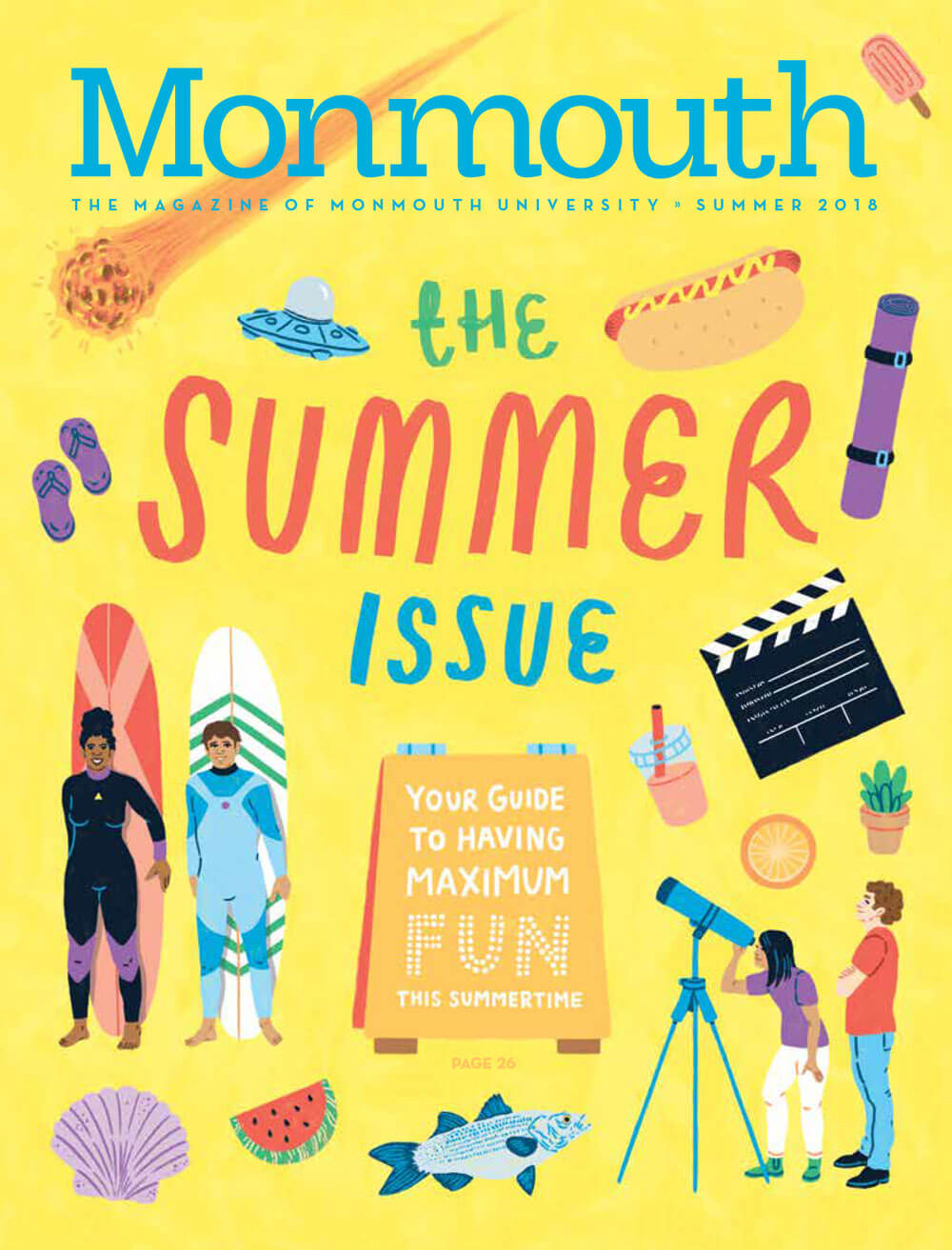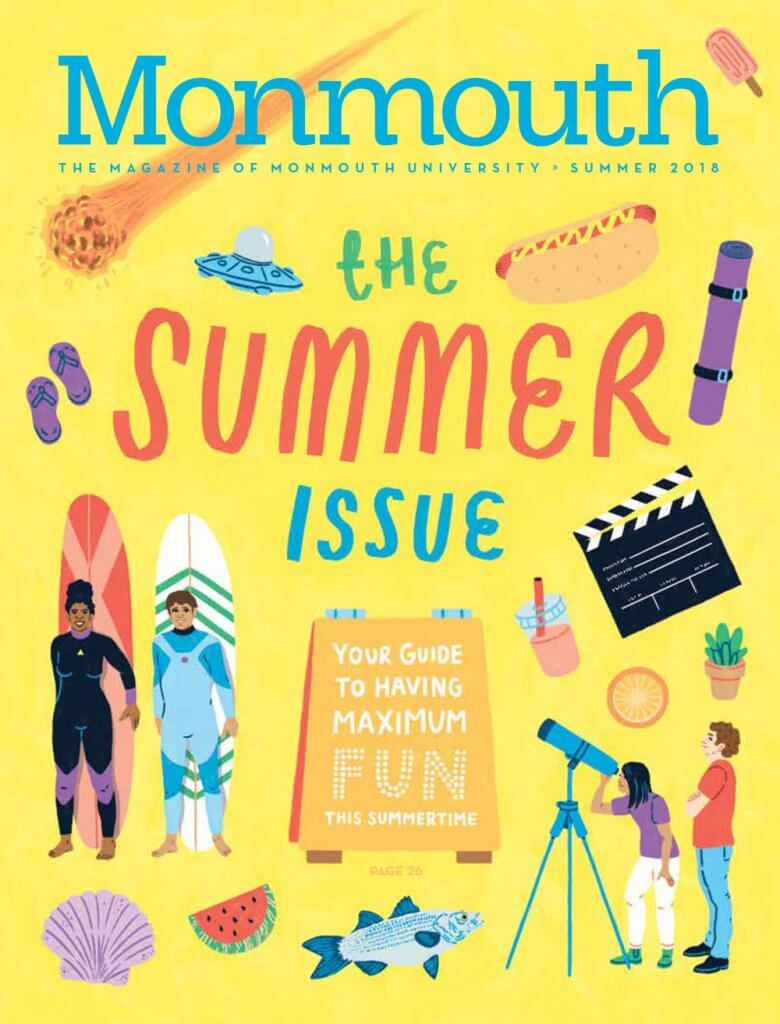
Letters
Readers have their say.
Re: Summer 2018

Monmouth University’s Autism Program Improvement Project (“Improving Autism Education”), directed by Drs. Lauderdale-Littin and Haspel in the School of Education, is a tremendous example of the level of scholarship and commitment to community that our faculty possess. Thanks to the pioneering vision and generous support of the Autism MVP Foundation, Monmouth University is at the forefront of providing evidence-based training for public school teachers of students with autism. The partnership with Autism MVP Foundation has been critical in identifying areas of need and improvement in special services across central New Jersey. As a result, participating teachers are demonstrating increased confidence and competencies in working with children on the autism spectrum, and their students are seeing improved academic, social, and behavioral outcomes. The Autism Program Improvement Project would not exist without the generous endorsement from the Autism MVP Foundation, and we are grateful for the opportunity to collaborate on this good work.
John E. Henning, Ph.D., Dean of the School of Education
I enjoyed my experience at Monmouth tremendously. The instructors were the best, the school was unbelievably beautiful, and all of the activities were fun and enriching. The students all got along, were best friends, and enjoyed each other. We didn’t have political issues. I was not pleased when I read the Q&A with Dante Barry (“The Organizer”) in the summer issue. I don’t care if people are sky-blue pink. I started an all-black school in Hayward, California, and sent my own daughter to it. I loved all my students, had them at my home, and they were part of my life. I just think there should be more positive articles in the magazine. I think we all need to focus more on the positive.
Evie (Pizzulli) Dopart ’61
Remembering a pioneer
I have a suggestion for future issues of the magazine: a series of articles about former and present professors who have significantly achieved notable accomplishments in their careers and fields of endeavor. Not only would this be interesting, but I feel noting these people and their stories would add to the prestige of Monmouth University.
A perfect example would be Dr. Walter S. McAfee, who was one of my professors in the early 1960s. Dr. McAfee was a theoretical physicist who taught advanced physics at Monmouth. While he was working for our government, he was involved in Project Diana [the first time radio waves were bounced off the moon and successfully received back on Earth]. Dr. McAfee contributed the necessary theoretical calculations, including a radar cross-section of the moon, radar coverage pattern, and the distance to the moon—all crucial to the project’s success.
Gary H. Barnett ’63